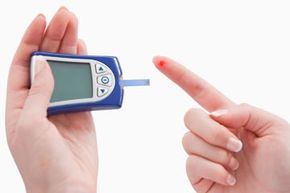There was a time when women who had diabetes were strongly advised to avoid getting pregnant. Attempting to produce a biologically-related family was just too dangerous [source: Brucker]. Fortunately, diabetic women are no longer given that heartbreaking direction from caregivers. Diabetics can, and routinely do, get pregnant and give birth to healthy children. Type 1 or Type 2 diabetes, however, can still be a major factor in fertility for men or women.
There are challenges diabetics face in getting a partner pregnant, becoming pregnant, maintaining a pregnancy and ensuring they give birth to a healthy, full-term baby. Diabetes (Type 1 or Type 2) can harm sperm [source: Paddock]. Type 2 diabetes can make it far more difficult to become pregnant. There's an increased rate of miscarriage among diabetics in general, and women with Type 1 diabetes are somewhat more likely to have a baby with a birth defect or a child born prematurely [source: MyDr]. However, all of these challenges can largely be managed by being attentive to and responding to signals from the body.
Advertisement
In order to understand why diabetes affects reproduction, it helps to have a general understanding of the disease in both of its forms. A healthy human body digests food and -- with the help of a hormone called insulin -- transports a form of sugar known as glucose through the bloodstream to cells for energy. Diabetics have flaws in their metabolism.
A Type 1 diabetic's body doesn't make insulin. The body of a Type 2 diabetic either fails to create enough insulin, the person's cells don't react properly to the insulin or both malfunctions occur [source: Nordqvist].
Click ahead to learn the specifics of how Type 1 diabetes influences reproduction and how it can be managed.
Advertisement


